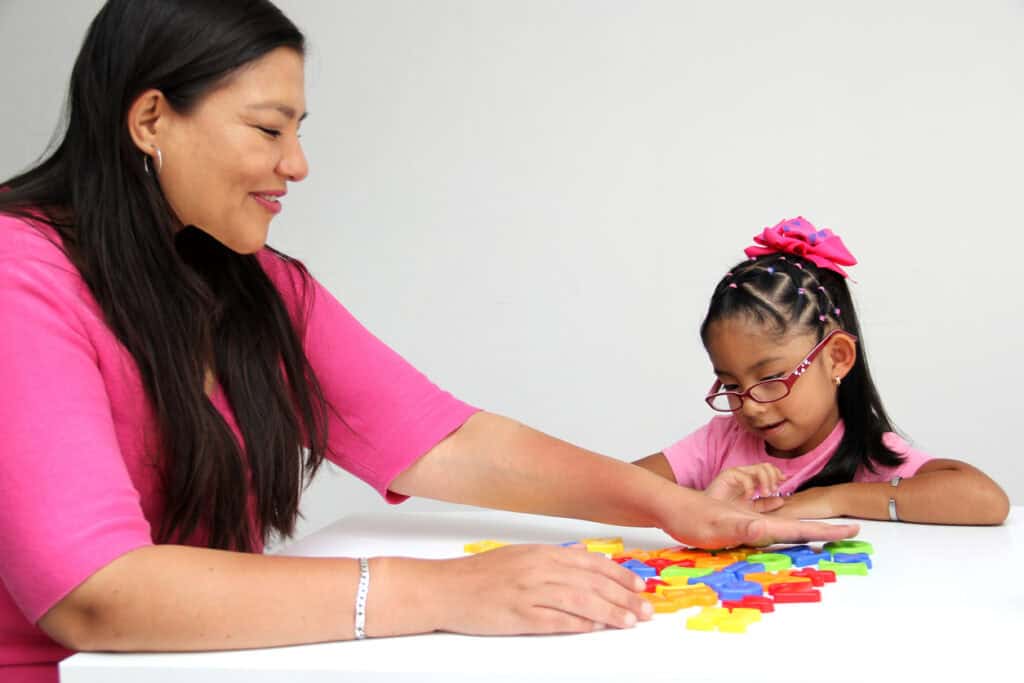Child Behavioral Assessments: Key Indicators to Watch For
Observing key indicators that may reveal underlying issues is essential when evaluating a child’s behavior. Look for significant changes in mood or behavior, such as withdrawal from social interactions or unusual aggression. Pay attention to patterns of behavior that interfere with daily functioning or relationships, like persistent anxiety or trouble focusing. Other red flags include extreme reactions to minor setbacks or difficulty adapting to changes in routine. By noting these signs early, you can seek appropriate support to help your child navigate their challenges effectively.
Identifying Mood Fluctuations
Observing significant mood swings can be a key indicator of underlying issues in a child’s behavior. Sudden changes in mood, such as intense irritability or prolonged sadness, may suggest emotional or psychological challenges. These fluctuations can impact a child’s interactions with peers, their ability to concentrate in school, and overall well-being. By closely monitoring these mood changes, parents and caregivers can gain insights into potential underlying problems that may need addressing.
It’s important to differentiate between typical developmental changes and more concerning patterns. While mood swings can be a regular part of growing up, extreme or persistent changes should be noted. Seeking professional guidance can help understand whether these mood variations are part of a broader issue and determine the best action to support the child’s emotional health.
Noticing Social Withdrawal
When a child begins to withdraw from social interactions, it can be a sign of deeper issues. Social withdrawal might manifest as avoiding friends, reluctance to participate in group activities or isolation in social settings. This behavior can indicate underlying anxiety, depression, or difficulties in social skills. Monitoring these changes is crucial for identifying significant emotional or psychological challenges that need attention.
Addressing social withdrawal early can help prevent further issues and support the child in re-engaging with peers. Encouraging open communication and providing opportunities for social interaction in a safe and supportive environment can help the child gradually regain confidence and social skills. Professional support may also be beneficial in understanding and addressing the root causes of social withdrawal.
Observing Aggressive Behaviors
Unusual aggression in a child, such as outbursts of anger or physical confrontations, can signal underlying behavioral issues. Aggressive behaviors may stem from frustration, inability to communicate effectively, or other emotional difficulties. Identifying the triggers and patterns of such behavior is essential for understanding its root cause and finding effective interventions.
Interventions include teaching the child coping strategies for managing anger, improving communication skills, and addressing any underlying issues contributing to their aggression. Collaboration with educators and mental health professionals can provide a comprehensive approach to managing and reducing aggressive behaviors, helping the child develop healthier ways to express their emotions.
Monitoring Anxiety and Fear Responses
Persistent anxiety or fear responses in children can significantly impact their daily functioning and well-being. Signs of anxiety might include excessive worry, avoidance of certain situations, or physical symptoms like stomach aches. Monitoring these responses is crucial for understanding the extent of their impact on the child’s life and determining appropriate interventions.
Providing a supportive and understanding environment can help the child feel more secure. Techniques such as gradual exposure to feared situations, relaxation exercises, and cognitive-behavioral strategies can be effective in managing anxiety. Seeking guidance from mental health professionals can also provide tailored strategies and support for addressing and alleviating anxiety-related issues.
Analyzing Difficulty with Routine Changes
Children who struggle with changes in routine may experience heightened stress and difficulty adapting. This challenge can manifest as resistance to new schedules, disruptions in daily activities, or heightened emotional reactions to changes. Identifying these difficulties early can help understand whether they are part of typical development or indicative of a more significant issue.
Supporting a child through transitions and routine changes involves providing structure and predictability while gradually introducing changes. Visual schedules, consistent routines, and positive reinforcement ease the transition. If difficulties persist, consulting with a professional can provide additional insights and strategies for managing these challenges effectively.
Recognizing Extreme Reactions to Setbacks
Extreme reactions to minor setbacks, such as intense frustration or despair, can be a red flag for underlying emotional or behavioral issues. These reactions might include disproportionate responses to small problems or an inability to recover from minor disappointments. Observing and understanding these patterns is crucial for addressing the child’s emotional resilience and coping mechanisms.
Interventions can involve helping the child develop adaptive responses to setbacks, such as problem-solving skills and emotional regulation techniques. Providing support through positive reinforcement, role-playing scenarios, and gradual exposure to challenges can help build resilience. Professional help may also be necessary to address any deeper issues contributing to extreme reactions.
Assessing Concentration and Focus Issues
Difficulty focusing or concentrating on tasks can impact a child’s academic performance and overall functioning. Issues such as frequent distractions, trouble completing assignments, or an inability to follow through with tasks might signal underlying attention or learning challenges. Identifying these issues early can help in finding appropriate support and interventions. Improving concentration might include the following, creating a structured and distraction-free environment, breaking tasks into smaller steps, using visual aids.
If focus issues persist, a thorough evaluation by educational or psychological professionals can provide insights into potential underlying conditions such as ADHD and guide the development of effective management strategies.
Seeking Support for Persistent Behavioral Patterns
When a child exhibits persistent behavioral patterns that interfere with daily life, seeking professional support is crucial. Persistent issues such as ongoing aggression, chronic anxiety, or severe social withdrawal may require a comprehensive evaluation to understand their causes and develop appropriate interventions. Early intervention can prevent these behaviors from becoming entrenched and impacting the child’s development. Engaging with mental health professionals, educators, and support networks can provide a multifaceted approach to addressing these behavioral concerns. Collaborating with specialists can offer tailored strategies, therapeutic interventions, and support systems to help the child navigate their challenges and improve their overall well-being.
Importance of Professional Support
When a child exhibits persistent behavioral issues that disrupt daily life, seeking professional support becomes essential. These emotional or social behaviors can significantly impact the child’s overall well-being and development. Professional support from psychologists, counselors, or behavioral specialists can provide a thorough understanding of the underlying issues, offering a pathway to effective interventions. Addressing these concerns early ensures the child receives the appropriate help to thrive.
Need for Comprehensive Evaluation
Persistent behavioral issues such as ongoing aggression, chronic anxiety, or severe social withdrawal often indicate deeper underlying problems. A comprehensive evaluation by a qualified professional is crucial to understand the root causes of these behaviors. This evaluation involves gathering detailed information from various sources, including parents, teachers, and the child, to develop an accurate diagnosis. This informed understanding allows for the creation of targeted and effective intervention strategies.
Early Intervention
Addressing behavioral concerns as early as possible is critical in preventing them from becoming entrenched and negatively affecting the child’s development. Early intervention can mitigate the impact of these behaviors on the child’s academic performance, social interactions, and emotional health. By intervening early, professionals can implement strategies that promote positive behavioral changes, enhancing the child’s ability to succeed in various aspects of life and reducing the risk of long-term difficulties.
Multifaceted Approach
Effective intervention for persistent behavioral issues often requires a multifaceted approach that involves collaboration between mental health professionals, educators, and support networks. This collaborative effort ensures that the child receives comprehensive care that addresses all aspects of their well-being. Mental health professionals can provide therapeutic interventions, while educators can offer tailored support in the classroom. Together, these efforts create a supportive environment that fosters the child’s growth and development.
Tailored Strategies and Interventions
Working closely with specialists allows for developing personalized strategies and interventions specifically designed to address the child’s unique challenges. These strategies may include behavioral therapy, social skills training, or other therapeutic approaches targeting the child’s needs. By creating a customized plan, professionals can provide the child with the tools and support they need to navigate their challenges, improve their behavior, and enhance their overall well-being.
Conclusion
Recognizing key indicators of behavioral challenges in children is crucial for early intervention and practical support. Behavioral assessments are essential tools for identifying issues such as aggression, anxiety, or social withdrawal that may impact a child’s development. By being vigilant and proactive, parents and educators can ensure that children receive the necessary care and guidance to address these concerns, ultimately supporting their emotional and psychological well-being.
At Abbey Neuro Psychology Clinic in Palo Alto, CA, we specialize in conducting comprehensive child behavioral assessments to help identify and address these key indicators. Our team of experienced professionals works closely with families to develop tailored intervention plans that promote positive outcomes. Understanding and addressing behavioral concerns early, we help children navigate challenges and thrive in all aspects of their lives.






